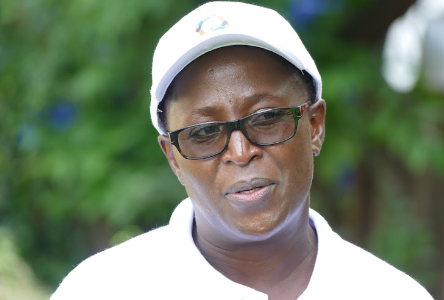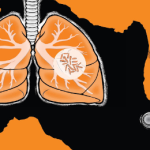Sarah Omega, 49, a fistula survivor and champion, leads the Let’s End Fistula Initiative (Lefi) organization.
She remained unmarried for 12 years after experiencing fistula. Fistula is a condition characterized by a hole between the bladder and vagina, typically resulting from prolonged obstructed labor, leading to uncontrollable leakage of urine or stool.
Omega shared that she became pregnant at a young age, which tragically resulted in a stillbirth. This traumatic experience left her with an injury that ultimately led to fistula.
“I got a fistula condition when I was 19 years old. The baby was huge and during birth, it could not pass because the birth canal was narrower. The baby weighed about 4. kg,” Omega said.
Sarah Omega shared her story during the International Day to End Obstetric Fistula Among Women event held at Cheptais Subcounty Hospital.
She recounted experiencing prolonged obstructed labor pains, which contributed to the development of the condition. This experience plunged her into depression as she faced rejection from family and friends.
According to the World Health Organization (WHO), obstetric fistula affects between 50,000 and 100,000 women annually worldwide.
It is estimated that over 2 million young women live with this untreated condition in Asia and sub-Saharan Africa alone. In Kenya, statistics indicate that two women develop fistula for every 100 births, resulting in approximately 2,400 new cases annually.
“The moment it was confirmed that I was battling fistula, I rejected myself before I was rejected. I could not go out and do the things I used to do as a teenager. I felt I was trapped. The condition sent me into isolation,” Omega said.
During periods, she battled unbearable pains from the genital part that resulted from friction.
“I could spend my nights crying because of the unbearable pain from the genital source. During the day, you have to really starve yourself but with friction in the nights, the friction and the pain were inescapable,” she said.
After enduring a 12-year battle with fistula, Sarah Omega found hope and healing at Moi Teaching and Referral Hospital (MTRH), where she underwent surgery to repair the condition. This transformative experience inspired her to become a champion for fistula awareness and treatment.
Omega founded the Let’s End Fistula Initiative (Lefi), a non-governmental organization dedicated to addressing maternal-related complications, with a specific focus on obstetric fistula.
Lefi operates in nine counties across Kenya, including Bungoma, West Pokot, Vihiga, Kakamega, Siaya, Migori, Trans Nzoia, Uasin Gishu, and Busia.
The organization’s initiatives encompass four strategic areas: identifying and connecting fistula patients with treatment opportunities, promoting economic empowerment, facilitating social integration, and empowering survivors to become advocates.
Through her advocacy work, Omega has reached over 2,000 women, ensuring they receive the necessary treatment and support. In Bungoma alone, the efforts of Lefi have brought an end to the suffering of 100 women affected by fistula.
Omega emphasizes the importance of addressing the three delays that contribute to maternal deaths: the delay in deciding to seek medical attention, the delay in reaching a healthcare facility, and the delay in receiving care upon arrival.
To combat these delays and reduce maternal mortality, Lefi collaborates closely with communities, utilizing fistula survivors as advocates for safe childbirth practices. By sharing their personal stories and experiences, these champions raise awareness and promote maternal health within their villages.
“We are focusing on the prevention messaging, focusing on issues around expectant women utilising antenatal services and putting emphasis on expectant women delivering under a skilled birth attendant,” she said.
Janet Chebet, medical superintendent at the Cheptais hospital, linked the rising fistula cases in the area to teen pregnancies, saying the teens’ organs are not mature enough to hold pregnancy.
She also blamed retrogressive practices such as female genital mutilation, using traditional birth attendants and gender-based violence.
“Most of the women who went through FGM suffer from fistula,” she said, adding that prolonged labour causes fistula.
To end fistula in the community, Chebet emphasised the need for pregnant women to attend antenatal care visits, deliver in the presence of skilled birth attendants and present at the health facility on time to avoid long obstructed labour.


